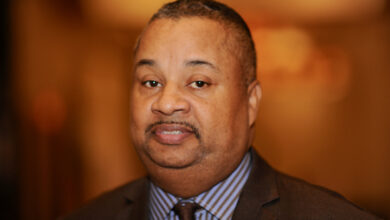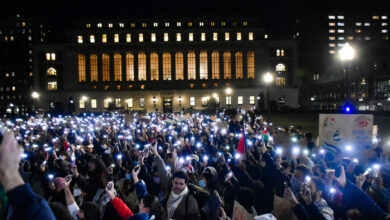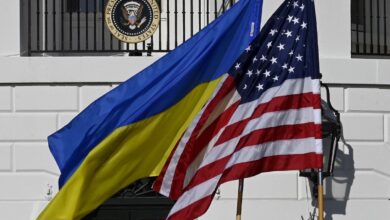Metropolis Library Conflict Highlights National Debate on Censorship

In the quaint town of Metropolis, Illinois, a battle is unfolding that reflects a broader national controversy over censorship and the role of libraries in maintaining free speech. This conflict, rooted deeply in the town’s identity as the self-proclaimed “Home of Superman,” has escalated into a significant socio-political struggle involving the local pastor, the library board, and the community at large.
It all started when Pastor Brian Anderson of Eastland Life Church warned his congregation of a metaphorical invasion by satanic forces aimed directly at the local library. This declaration set the stage for a fiery campaign against perceived moral decline, beginning with the town’s library.
Pastor Anderson’s rallying cry was not without consequence; it ignited a fervent discussion about the content within the Metropolis Public Library. He depicted the library as a new battleground in the fight against what he sees as a campaign to undermine Christian values through the inclusion of LGBTQ-themed books and other materials that some locals claim are inappropriate for children.
The situation intensified when the library board scheduled a meeting to discuss adherence to the Library Bill of Rights, which is a cornerstone policy advocated by the American Library Association to prevent censorship. This policy became a point of contention because it was perceived by some as a gateway to more liberal content in the library’s catalog.
The ensuing months saw a dramatic increase in public participation in what were once sparsely attended library board meetings. Discussions often heated and deeply divided the community. Residents who rarely engaged in civic activities found themselves drawn into a debate that echoed the growing national divide over cultural and social issues.
The conflict reached a pivotal moment with the controversial dismissal of the library director, accused by some of swaying too far in her religious convictions in her role. The director’s actions, including the alleged removal of certain books and the introduction of explicitly Christian programs, sparked a backlash that questioned the appropriateness of her decisions within the public sector.
This local dispute in Metropolis has caught the attention of state officials and has even been featured in national media, portraying the town’s struggle as a microcosm of the country’s larger battle over free speech and the role of public institutions in a democracy.
The implications of this battle are profound. On one side, there are those who feel that public libraries should reflect a broad spectrum of viewpoints and serve diverse communities without imposition of a singular moral paradigm. On the other, there are those who feel deeply that public spaces should reflect traditional values and protect children from what they consider harmful content.
As the debate rages on, the Metropolis library remains a symbol of the tensions faced by many communities across America. The town’s struggle with its identity, its values, and its future is a poignant reminder of the ongoing national conversation about who gets to decide what is culturally and morally acceptable for public consumption.
This episode in Metropolis not only challenges the town’s charming, comic-book reputation but also forces its residents to confront the real-world issues of censorship, cultural change, and the essence of community values. It poses fundamental questions about the balance between protecting youth and preserving the freedom of information — challenges that are central to our era.
The unfolding drama in Metropolis serves as a case study for other small towns across the United States, as they navigate the choppy waters of cultural and political change in an increasingly polarized environment.
Keywords:
Metropolis Illinois, library censorship, cultural debate, Pastor Brian Anderson, Library Bill of Rights, book bans, freedom of speech, LGBTQ books, public library controversy, national discourse on censorship.




